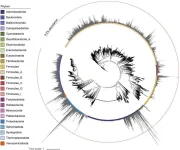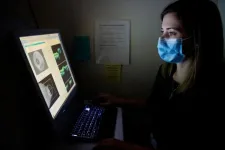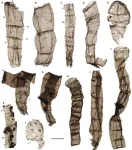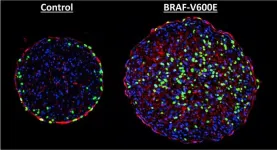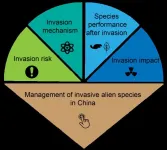(Press-News.org) DNA from ancient feces can offer archaeologists new clues about the life and health of Japanese people who lived thousands of years ago, according to a study published January 24, 2024 in the open-access journal PLOS ONE by Luca Nishimura and Ituro Inoue from the National Institute of Genetics, Japan, Hiroki Oota from The University of Tokyo, Mayumi Ajimoto from Wakasa History Museum, and colleagues.
Fossilized feces, also known as coprolites, can preserve an array of genetic material from the digestive tracts of ancient people. This includes the DNA of the microbes and viruses that lived in their digestive system—all of which could help archaeologists understand more details about their culture and lifestyle. In this study, researchers analyzed the genetic traces left behind in four coprolites collected at Japan’s Torihama shell-mound archaeological site to assess what details of the ancient people’s lives could be ascertained from these samples.
The fecal samples were between 5,500 and 7,000 years old, dating back to the island chain’s Early Jomon period. The researchers collectively sampled all of the genetic material from the coprolites and compared the DNA they found with known genetic sequences. Within the fecal samples, they found DNA fragments of the viruses which are homology with human betaherpesvirus 5 and human adenovirus F.
DNA breaks down over time, so the genomes represented in the coprolites were often highly fragmented. But despite this degradation, the researchers were still able to assess what kinds of microbes and viruses may have been present in people’s digestive systems thousands of years ago. In addition, the authors suggest that the coprolites’ preservation of both viral and bacterial genetic material could help scientists explore how bacteria and the viruses that infect those bacteria have co-evolved over time.
#####
In your coverage please use this URL to provide access to the freely available article in PLOS ONE: https://journals.plos.org/plosone/article?id=10.1371/journal.pone.0295924
Citation: Nishimura L, Tanino A, Ajimoto M, Katsumura T, Ogawa M, Koganebuchi K, et al. (2024) Metagenomic analyses of 7000 to 5500 years old coprolites excavated from the Torihama shell-mound site in the Japanese archipelago. PLoS ONE 19(1): e0295924. https://doi.org/10.1371/journal.pone.0295924
Author Countries: Japan
Funding: This work was supported by JSPS KAKENHI (grant numbers JP17H03738(HO), JP18H05506(II), JP20H01370(HO), JP20K21405(II), JP21H05362(HO), JP21J22509 (LN), JP21K19289(HO), JP22F22075(HO)), AMED under Grant Number JP23ek0109650h0001(II)), and Research Organization of Information and Systems (Investment program for futuristic research projects) (RS). The funders had no role in study design, data collection and analysis, decision to publish, or preparation of the manuscript.
END
DNA from preserved feces reveals ancient Japanese gut environment
The samples also contained evidence of bacteria and viruses from the ancient human gut microbiome
2024-01-24
ELSE PRESS RELEASES FROM THIS DATE:
A virus that infected the first animals hundreds of millions of years ago has become essential for the development of the embryo
2024-01-24
At least 8% of the human genome is genetic material from viruses. It was considered ‘junk DNA’ until recently, but its role in human development is now known to be essential
Researchers at the Spanish National Cancer Research Centre (CNIO) describe for the first time the role of these viruses in a key process in development, when cells become pluripotent few hours after fertilization
The finding, published in Science Advances, is relevant for regenerative medicine and for the creation of artificial ...
City of Hope, TGen researchers develop machine-learning tool to detect cancer earlier via liquid biopsy
2024-01-24
LOS ANGELES — Researchers at City of Hope, one of the largest cancer research and treatment organizations in the United States, and Translational Genomics Research Institute (TGen), a precision medicine research organization that is part of City of Hope, have developed and tested an innovative machine-learning approach that could one day enable the earlier detection of cancer in patients by using smaller blood draws. The study was published today in the journal Science Translational Medicine.
“A huge body of evidence shows that cancer caught at later stages kills people. This new technology gets us closer to a world ...
Gene behind heart defects in Down syndrome identified
2024-01-24
Francis Crick Institute press release
Under strict embargo: 19:00hrs GMT 24 January 2024
Peer reviewed
Experimental study
Animals
Gene behind heart defects in Down syndrome identified
Researchers at the Francis Crick Institute and UCL have identified a gene that causes heart defects in Down syndrome, a condition that results from an additional copy of chromosome 21.
Reducing the overactivity of this gene partially reversed these defects in mice, setting the scene for potential future therapies for heart conditions in people with Down syndrome.
Down syndrome ...
Moving humanoid robots outside research labs: the evolution of the iCub3 avatar system
2024-01-24
Genova (Italy), 24 January 2024 - Over the past four years, the research team at the Artificial and Mechanical Intelligence (AMI) lab at the Istituto Italiano di Tecnologia (IIT-Italian Institute of Technology) in Genova (Italy) has developed advanced avatar technologies, known as the iCub3 system, in continuous testing with real-world scenarios. The system was utilized to enable a human operator to remotely visit locations 300 km away, to entertain the public at events and television appearances, and ...
Retinal imaging and genetics data used to predict future disease risk
2024-01-24
Mass Eye and Ear physician-researchers show that retinal imaging can help predict a person’s risk of developing ocular, neuropsychiatric, cardiac, metabolic, and pulmonary diseases.
The team also identified genetic loci associated with retinal thinning, which could help develop personalized treatment plans and future therapies for eye diseases such as glaucoma and macular degeneration.
The retina is said to provide a window into a person’s systemic health. In a new study published January 24th in Science Translational Medicine, physician-researchers from Mass ...
North China fossils show eukaryotes first acquired multicellularity 1.63 billion years ago
2024-01-24
In a study published in Science Advances on Jan. 24, researchers led by Prof. ZHU Maoyan from the Nanjing Institute of Geology and Palaeontology of the Chinese Academy of Sciences reported their recent discovery of 1.63-billion-year-old multicellular fossils from North China.
These exquisitely preserved microfossils are currently considered the oldest record of multicellular eukaryotes. This study is another breakthrough after the researchers’ earlier discovery of decimeter-sized eukaryotic fossils in the Yanshan area ...
Harnessing skin cancer genes to heal hearts
2024-01-24
DURHAM, N.C. – Biomedical engineers at Duke University have demonstrated that one of the most dangerous mutations found in skin cancers might moonlight as a pathway to mending a broken heart.
The genetic mutation in the protein BRAF, a part of the MAPK signaling pathway that can promote cell division, is one of the most common and most aggressive found in melanoma patients. In a new study, researchers show that introducing this mutation to rat heart tissue grown in a laboratory can induce growth.
Repairing ...
Special Feature calls attention to biological invasion research in China
2024-01-24
This month, the Ecological Society of America spotlights the challenge posed by invasive alien species in China with the release of a Special Feature, “Management of Biological Invasions in China,” in the latest issue of its journal Ecological Applications.
Accelerating rates of biological invasion have led to growing concerns about the destructive impacts of invasive alien species, or IAS, on the environment and human societies. This is especially true in China, which has witnessed a surge in ...
Researchers add a ‘twist’ to classical material design
2024-01-24
Researchers with the Department of Energy’s SLAC National Accelerator Laboratory, Stanford University and the DOE's Lawrence Berkeley National Laboratory (LBNL) grew a twisted multilayer crystal structure for the first time and measured the structure’s key properties. The twisted structure could help researchers develop next-generation materials for solar cells, quantum computers, lasers and other devices.
“This structure is something that we have not seen before – it was a huge surprise to me,” said Yi Cui, a professor at Stanford and SLAC and paper co-author. “A new quantum electronic property could appear ...
The costly, unintended consequences produced by the National Flood Insurance Program
2024-01-24
Since the creation of the National Flood Insurance Program (NFIP) in 1968, the U.S. government has paid over $51 billion to cover flood losses. Almost half of these payouts went to just 25 counties, among the fastest-growing counties by population. A new paper published in the Journal of the Association of Environmental and Resource Economists examines whether insuring people against potential flood losses contributes directly to population growth in flood-prone areas. In “Does the National Flood Insurance Program Drive Migration ...
LAST 30 PRESS RELEASES:
GLP-1 drugs associated with reduced need for emergency care for migraine
New knowledge on heritability paves the way for better treatment of people with chronic inflammatory bowel disease
Under the Lens: Microbiologists Nicola Holden and Gil Domingue weigh in on the raw milk debate
Science reveals why you can’t resist a snack – even when you’re full
Kidney cancer study finds belzutifan plus pembrolizumab post-surgery helps patients at high risk for relapse stay cancer-free longer
Alkali cation effects in electrochemical carbon dioxide reduction
Test platforms for charging wireless cars now fit on a bench
$3 million NIH grant funds national study of Medicare Advantage’s benefit expansion into social supports
Amplified Sciences achieves CAP accreditation for cutting-edge diagnostic lab
Fred Hutch announces 12 recipients of the annual Harold M. Weintraub Graduate Student Award
Native forest litter helps rebuild soil life in post-mining landscapes
Mountain soils in arid regions may emit more greenhouse gas as climate shifts, new study finds
Pairing biochar with other soil amendments could unlock stronger gains in soil health
Why do we get a skip in our step when we’re happy? Thank dopamine
UC Irvine scientists uncover cellular mechanism behind muscle repair
Platform to map living brain noninvasively takes next big step
Stress-testing the Cascadia Subduction Zone reveals variability that could impact how earthquakes spread
We may be underestimating the true carbon cost of northern wildfires
Blood test predicts which bladder cancer patients may safely skip surgery
Kennesaw State's Vijay Anand honored as National Academy of Inventors Senior Member
Recovery from whaling reveals the role of age in Humpback reproduction
Can the canny tick help prevent disease like MS and cancer?
Newcomer children show lower rates of emergency department use for non‑urgent conditions, study finds
Cognitive and neuropsychiatric function in former American football players
From trash to climate tech: rubber gloves find new life as carbon capturers materials
A step towards needed treatments for hantaviruses in new molecular map
Boys are more motivated, while girls are more compassionate?
Study identifies opposing roles for IL6 and IL6R in long-term mortality
AI accurately spots medical disorder from privacy-conscious hand images
Transient Pauli blocking for broadband ultrafast optical switching
[Press-News.org] DNA from preserved feces reveals ancient Japanese gut environmentThe samples also contained evidence of bacteria and viruses from the ancient human gut microbiome
